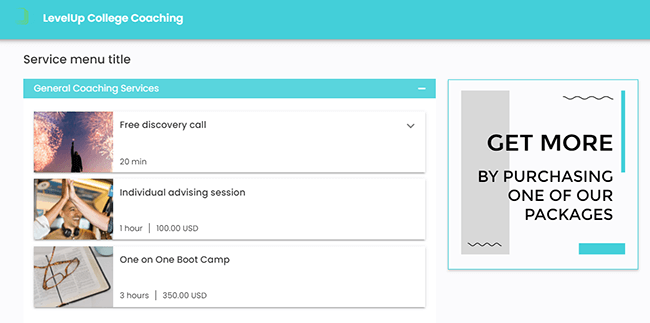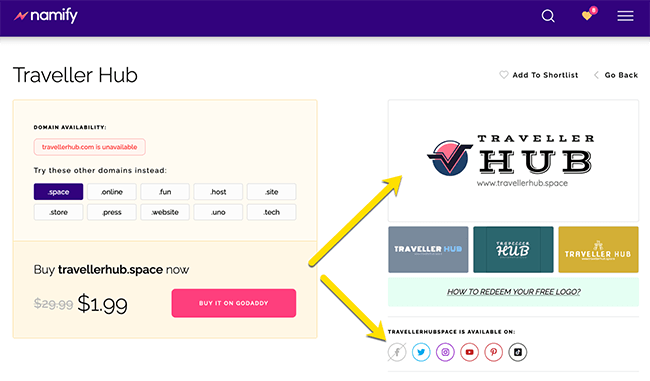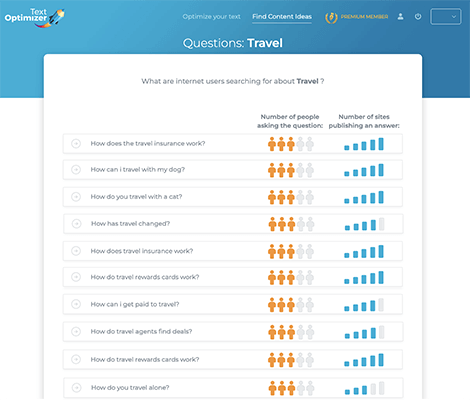
Selling services is one of the most effective ways to monetize your blog.
It requires almost no investment and is easily combined with your full-time job until you know it will allow you to earn a living.
Becoming a consultant requires skills and experience, but you don’t necessarily need an expensive degree to provide consulting services, and you don’t need to rent an office.
Constance is also the kind of service where you take no responsibility for the task, for example, you don’t need the keys of a website to provide an SEO consulting service, so there is no chance of breaking anything or losing data.
How can you use blogs to sell your consulting services? Here is a step by step guide.
Define your close experience
Finding your own niche expertise makes it easier to get noticed even in oversaturated niches like SEO. It would take years for him to be known as an «SEO consultant», but it’s much easier to brand yourself as an expert in «Google Local Profile Optimization» or «Core Sweb Vitals».
Promoting a limited experience is also easier because you are dealing with much less competitive PPC keywords and search queries. It also makes your blog content and strategy much more defined, so it’s important to identify your expertise before you start your blog.
Exactly how you define your expertise is based on your actual experience, skill set, and the topics you are most excited to explore. Avoid becoming an SEO writer if you hate writing, and don’t start a technical consulting business if you’re not confident in your developer skills. Take the time to find something you are excited to do:
You can narrow down your experience by doing the following:
- Provide services that focus on a specific location (eg UK consultant)
- Focus on a specific niche (for example, travel SEO consultant)
- Focus on a specific task (for example, Core Web Vitals optimization consultant)
Keyword research will be helpful in determining the query angle, as it is a good way to measure demand (i.e. search volume).
SE Classification keyword research tool allows you to filter keyword suggestions by difficulty (i.e. organic competition) while sorting them by search volume. This allows you to identify keyword opportunities that don’t require years of SEO efforts:

Set up lead generation channels on your blog
Before officially launching your blog or optimizing it to sell your services, setting up your sales channels is the first step. You don’t have to wait for your blog to rank to start selling your services. You can generate clicks through tweets, ads, participating in niche forums and communities.
Make sure you have your «Services» pages set up at a very early stage to capture the first few clicks.
Live offers bloggers an easy way to sell services by managing fundraising, scheduling calls, and even generating leads. You can embed a query booking widget on certain pages of your blog, allowing readers to schedule sessions when you’re available and even pay in advance.
In addition, vcita allows the creation of a more efficient sales channel with «Service bundle function”, which allows bloggers to bundle several of their services into one or combine services with unique products (for example, a series of consulting sessions for the price of a package):

Also, you need to make sure that you offer convenient ways to get in touch with you, so enhance your contact page by creating an email form, offering a phone number option or allow your potential customers to use a smart chatbot.
Blog about problems your service can solve
Once you identify your consulting niche, make sure it is reflected in all of your subsequent endeavors, including:
- the name of the blog
- social media channels
- logo
- Contents
Namify will deal with the first three of these items. Find domains based on your niche, check their availability on social channels, and generate free logos to use:

From there, find content ideas that appeal to your specific needs. Keyword research is again a good place to start. Research questions are another great source of content ideas that solve problems your target audience is facing.
BuzzSumo is the best tool for researching niche questions because it pulls questions from multiple sources like Quora, Amazon Q&A, and niche forums.

When exploring future blog topics, group them by search intent or common theme. This will eventually allow you to create static landing pages that describe your services. For example, some questions may explore all angles of saving money, others may relate to increasing the productivity of work processes, etc.
(More information in this BuzzSumo Review.)
text optimizer is a great tool for understanding your topic at a higher level, generating semantically relevant questions that deserve landing pages on your blog:

Keep decision makers in mind
Who will benefit from your consulting service? Is it another company you will be providing consulting services to or will it be people? Or maybe both? Understanding your target customer is important in developing your blog content strategy to meet their needs.
For example, if you plan to help businesses, keep in mind that they may have internal teams addressing the same issues.
Don’t position yourself as a substitute for internal teams because ultimately those internal teams will decide if they are worth working for. Instead, describe how you can compliment them, make their lives easier, and their work more enjoyable.
Audience research starts with your own experience (people you’ve met in the past who could benefit from your service) and continues with competitor research (look up their target keywords and explore those ranking pages – who are they talking to? ?).
Keep these decision factors in mind when developing your blog’s content strategy.
Keep building your personal brand
Blogging is a great way to start selling your consulting services, but you won’t get much progress unless you promote your blog and personal brand outside of your own website.
Here are some additional ideas on how to publicize your expertise and your personal brand:
- Contribute to well-known blogs in your niche. Expert articles generate the highest quality leads. In fact, that’s the only way I generate mine, so I know what I’m talking about. Start with a few columns from experts in your niche, and then expand to more. Ultimately, your goal is to stick to the columns that drive traffic and leads and leave the rest while always looking for new opportunities.
- Post high-quality expert answers on Quora. This is another ongoing effort, but it’s a great way to establish yourself as an expert on a subject. Keep unique responses focused on your expertise and helpful. Avoid being too self-promoting. Your description will suggest that you sell related services, your answers should be really helpful.
- Participate in niche forums. Again, look for connections and focus on adding value rather than just promoting yourself. This approach will pay off in the long run, even if you don’t see immediate sales.
- Attend and organize virtual events. These could be talks of TwitterLive streaming of Q&A, webinars, etc.
conclusions
- Blogging is a great way to build your personal brand and sell your consulting services.
- Define your limited experience when you start. This will make it easier to increase visibility and drive organic search traffic (and leads). You will be able to expand into more generic services when you are well known in your niche.
- Use vcita to set up your landing pages, capture leads, manage your customers, and even process payments.
- Use keyword research and questions to focus your blog content strategy on the problems your consulting service helps solve.
- Consider your target audience and decision makers. Scout your competitors to identify who they’re talking to and how they select topics to attract the right customers.
- Build your personal brand and promote your blog by contributing to niche posts, providing expert opinions on Quora and niche forums, and attending (virtual) niche events.
